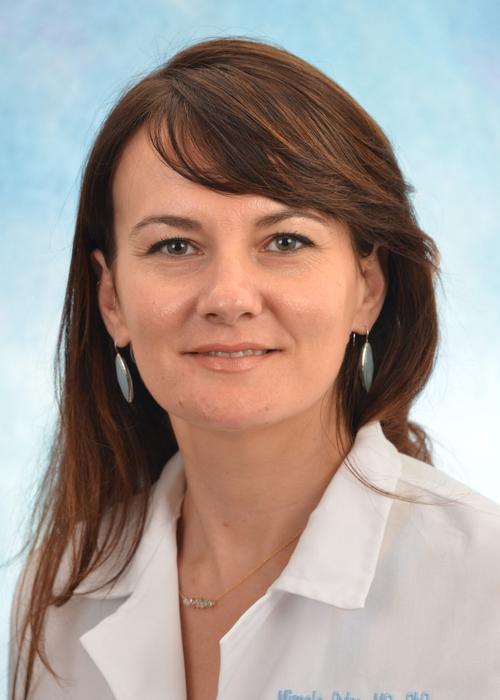The ARIES-HM3 Randomized Clinical Trial assessed the safety and efficacy of excluding aspirin from the antithrombotic regimen in patients with advanced heart failure who have undergone implantation of a fully magnetically levitated left ventricular assist device (LVAD).

Credit: UNC Department of Medicine
The ARIES-HM3 Randomized Clinical Trial assessed the safety and efficacy of excluding aspirin from the antithrombotic regimen in patients with advanced heart failure who have undergone implantation of a fully magnetically levitated left ventricular assist device (LVAD).
“We can now safely say that not giving aspirin is not only safe from a thromboembolic risk profile but results in improved adverse event rate by a significant reduction in non-surgical bleeding which is a well-known complication related to LVAD therapy,” said Mirnela Byku, M.D., Ph.D., MBA, co-author of the study and director of the UNC Durable Mechanical Circulatory Device Program at the UNC School of Medicine. “Improving not only longevity but also reducing morbidity and improving quality of life is a big focus in the field of MCS.”
Until this study, there had been no consensus in the field about use of or dose of aspirin in the LVAD population. The paper was published in JAMA.
The international clinical trial followed a randomized, double-blind, placebo-controlled design and involved 628 patients across 51 centers in 9 countries. The patients were divided into two groups: one receiving aspirin (100mg/d) and the other receiving a placebo in addition to vitamin K antagonist (VKA) therapy.
A focus was to determine if the likelihood a patient experiences major nonsurgical hemocompatibility-related adverse events (such as stroke, pump thrombosis, major bleeding, or arterial peripheral thromboembolism) within 12 months differed between the two groups.
The results showed not giving aspirin to patients with advanced heart failure, treated with a fully magnetically levitated LVAD who are receiving VKAs, did not make their survival worse. Furthermore, aspirin avoidance was associated with a significant reduction (34%) in major nonsurgical bleeding events.
About UNC School of Medicine
The UNC School of Medicine (SOM) is the state’s largest medical school, graduating more than 180 new physicians each year. It is consistently ranked among the top medical schools in the US, including 5th overall for primary care by US News & World Report, and 6th for research among public universities. More than half of the school’s 1,700 faculty members served as principal investigators on active research awards in 2021. Two UNC SOM faculty members have earned Nobel Prize awards.
# # # #
Journal
JAMA
DOI
10.1001/jama.2023.23204
Article Title
Aspirin and Hemocompatibility Events With a Left Ventricular Assist Device in Advanced Heart Failure
Article Publication Date
11-Nov-2023




